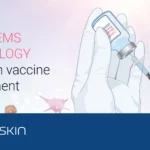ETHICS COMMITTEE FOR HUMAN SKIN RESEARCH
Genoskin’s high quality human skin models are created from human skin that is donated and collected in France with the informed consent of individual donors. Using human skin tissue for scientific purposes also requires the approval and authorization of the French Ethics Committee (Comité de Protection de Personnes or CPP) and the French Ministry of Research and Higher Education.
Approval of the French Ethics Committee
In France, authorizations from the French Ministry for Higher Education and Research also depend on the advice of the Committee for the Protection of Persons (CPP), in accordance with the French Law of August 9th 2004 on Biomedical Research. CPPs have a co-decisive role in authorizations to conduct biomedical research and are the French equivalent of ethical research committees. Their functioning is defined by law.
Article L.1123-6 of the National Code of Public Health was introduced with the Law of August 9th 2004 and stipulates that before conducting biomedical research on human beings, the research promoter must submit the project to the competent Committee for the Protection of Persons in the geographical area where the research will take place.
French ethical research committees are composed of 14 members divided in 2 groups, called colleges:
Genoskin’s project to create innovative human skin models from donated human skin tissue was submitted to the appropriate CPP, i.e. Comité de Protection des Personnes Sud Ouest et Outre Mer II (Committee for the Protection of Persons of the French South-West and Overseas Regions), which issued a favorable opinion.
This approval was then submitted to the French Ministry for Higher Education and Research for final validation.



